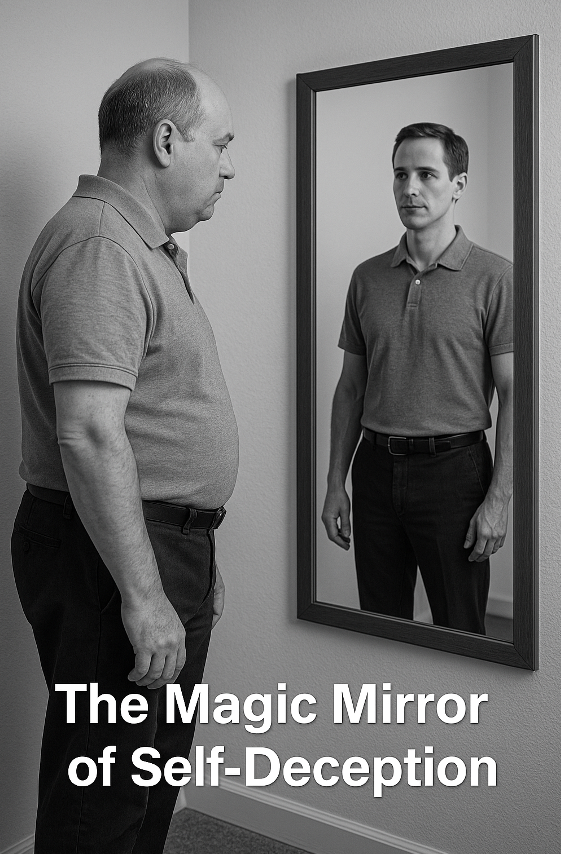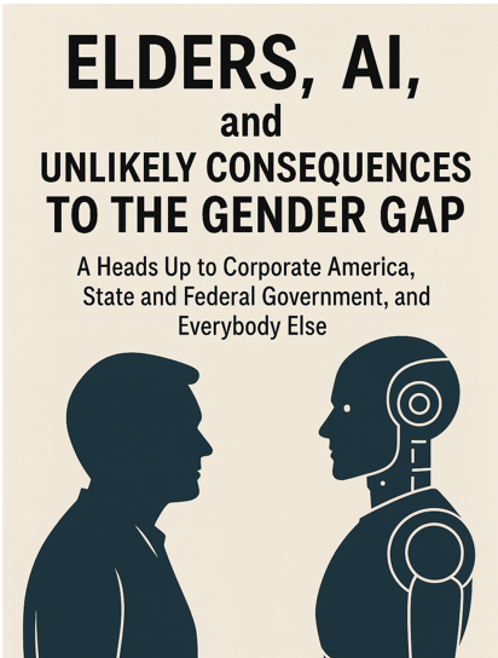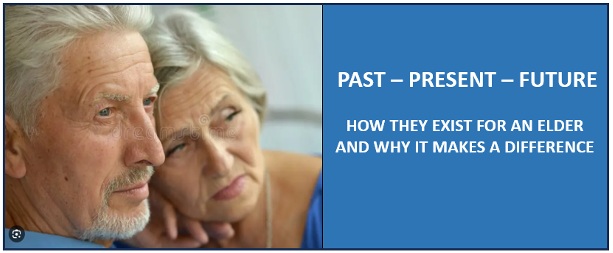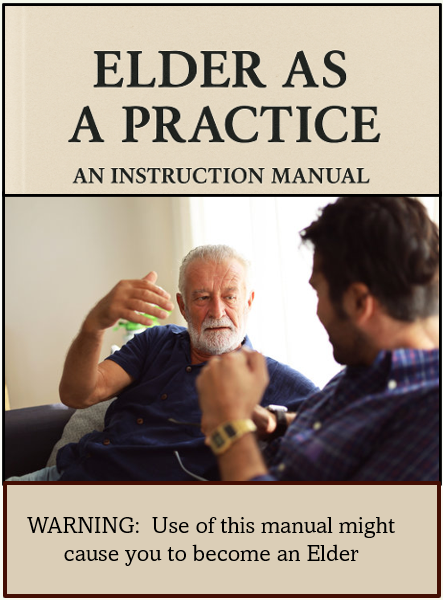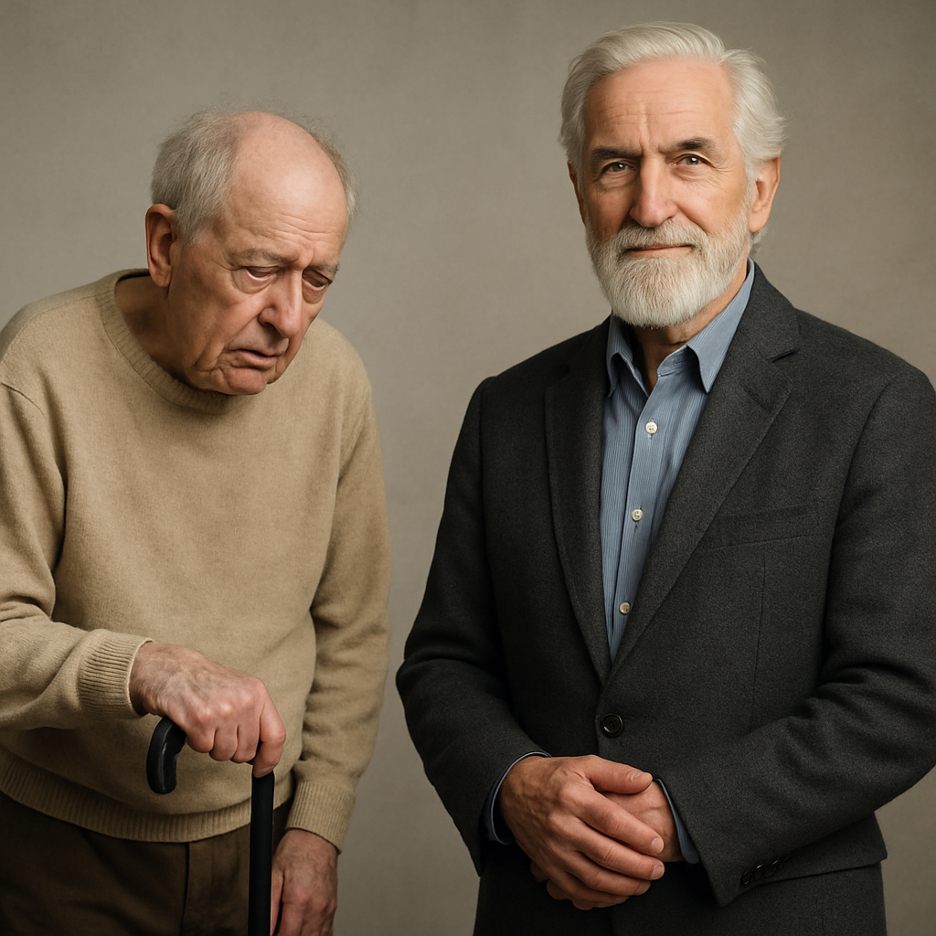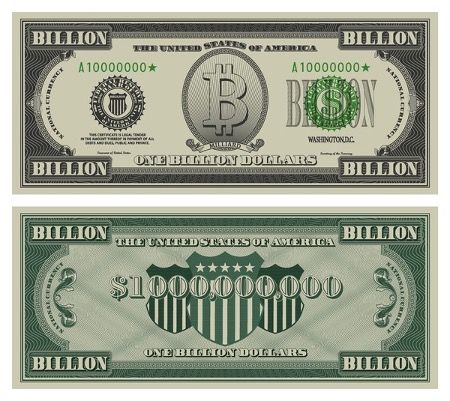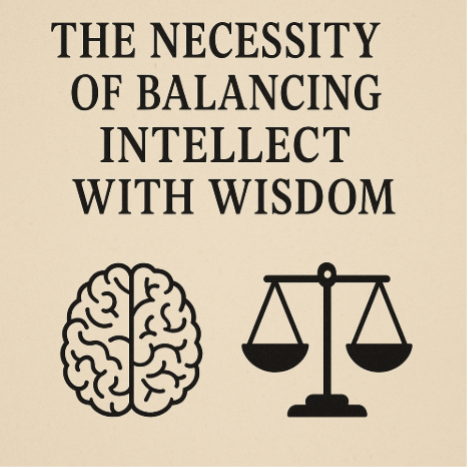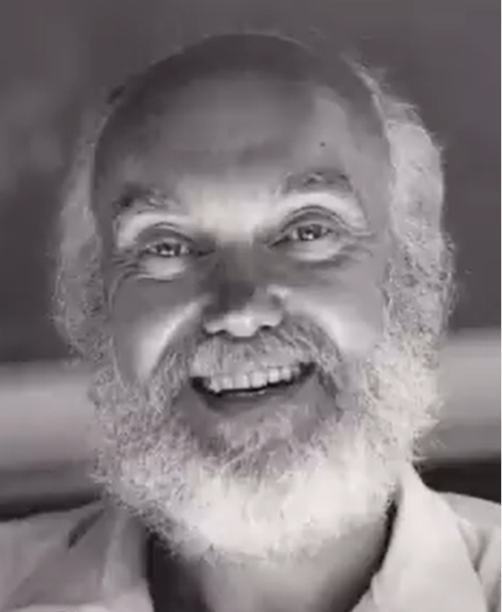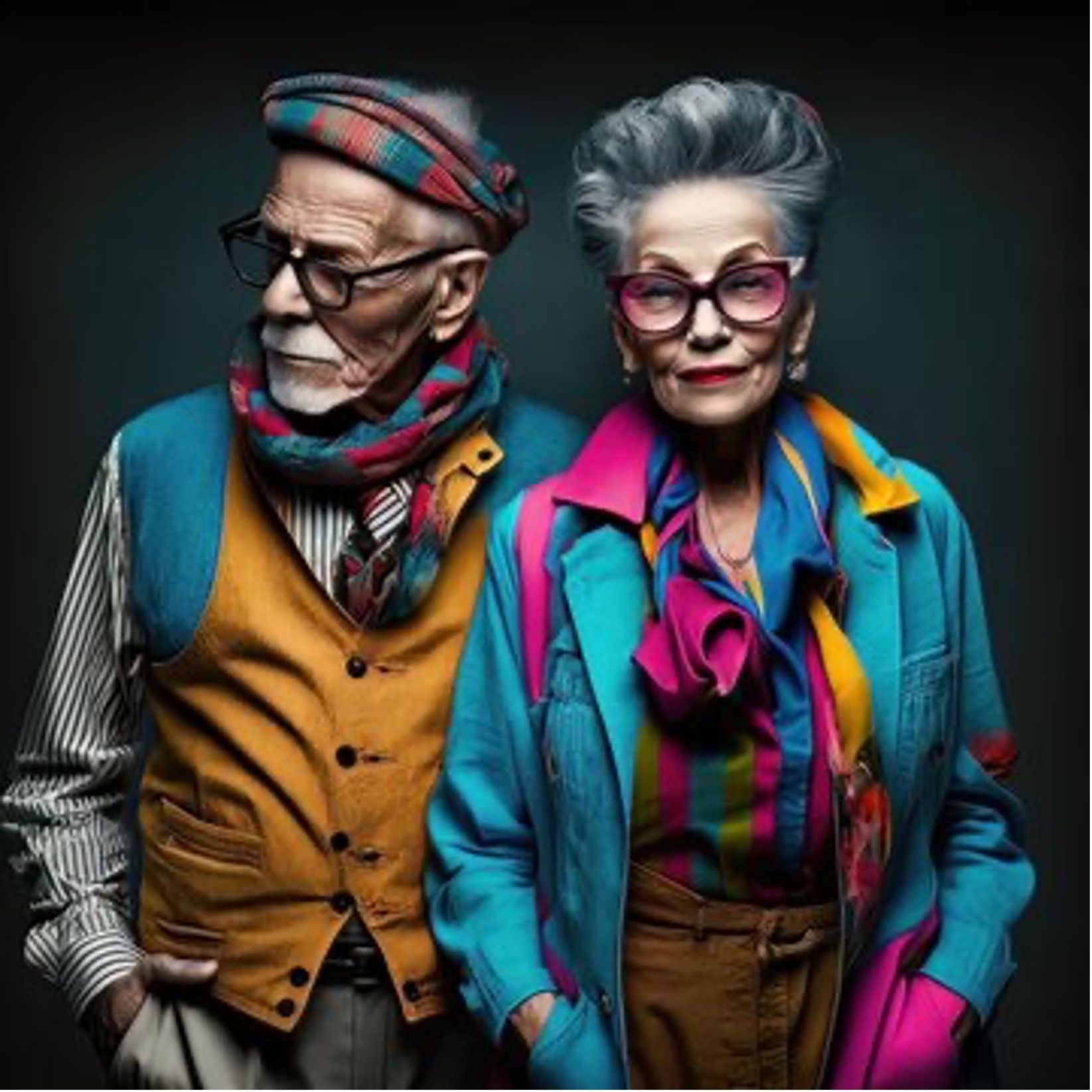ELDERLY or ELDER
ELDERLY or ELDER
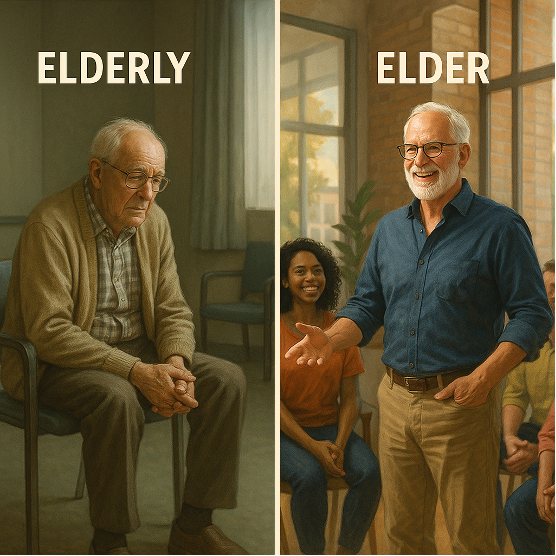
IT’S THE CONTEXT
It really is more than an either/or choice. "Elderly" and "Elder" are two entirely different contexts. And here's the kicker—context is always decisive.
Context is everything. It's the backdrop that turns a mundane act into something meaningful or, sometimes, forgettable. Just like a seed planted in different soil: some grow strong in rich, fertile earth, while others dry up in a barren patch of dirt. The same word, idea, or action takes on completely different meanings depending on the context in which it's placed.
Context determines what things mean, how they're known, how they're understood, and how they shape our emotional response. A compliment about someone's appearance might feel uplifting at a casual social gathering, but dropping it in a professional meeting comes off as awkward, if not inappropriate.
So yeah, context is decisive.
And when it comes to aging, the context between "elderly" and "elder" has a profound impact on the quality of life as one grows old.
Can’t say it enough: context is decisive.
Check Yourself Out—Notice
Take a moment.
Write down or type the word “elderly.” Then observe your thoughts and physical sensations.
Notice what happens in your mind and your body when you see the word "elderly." You might feel a sense of sadness, discomfort, or even resignation.
Now, notice your physical response when you hear the word "elder." Does your posture shift? Do you feel more energized? More respect?
You'll notice pretty quickly that "elderly" and "elder" might sound similar, but they exist in vastly different contexts. And that context determines what thoughts, perceptions, and feelings thrive—and what gets pushed aside.
The Leadership Context Reveals Everything
Let's use leadership as an example to see how dramatically context shifts meaning.
Imagine the term "elderly" in a leadership context. What comes to mind? A liability, right? An elderly leader in the corporate world might be seen as past their prime, out of touch, or a hindrance to innovation. Believe me, I've lived this one—marginalized, isolated, avoided, disrespected, overlooked. You’re a whisper in a room of loud music.
Now, apply "elder" in the same leadership context. Everything changes. An "elder" is someone who brings wisdom, experience, and stability to the table.
They offer a long-term perspective, mentorship, and a level of insight that younger leaders haven't yet earned.
In this context, an elder's success isn't measured by how well they can use the latest tech gadgets; it's about offering timeless wisdom and sage strategic guidance.
Context determines the future. Whether aging is framed as decline (elderly) or wisdom (elder), it shapes how you engage with growing old.
Two Futures: Default vs. Conscious Choice
Here's where the distinction becomes life-altering.
When you think of "elderly," their future is pretty much pre-written. It's a narrative you've encountered a hundred times: slow decline, frailty, dependency, and the idea that life is winding down. The elderly wait for things to happen to them.
But when we talk about an Elder, we're talking about someone who actively creates their future. Elders don't sit back and let aging happen to them. They create their future, crafting it with purpose and intention. They don't just get old; they grow—mentally, spiritually, emotionally.
Think of it this way: The elderly are like a leaf in the river, drifting wherever the current takes them. But the Elder? They're the rower on the boat, navigating through turbulent waters. They chart their course, choose their direction, and determine their pace.
Cultural Narrative vs. Personal Authority
Here's the thing: The "elderly" are trapped by the cultural narrative. Society's expectations, unexamined gossip, and the relentless ticking of the clock define them. They're boxed into a corner where their value is continually reduced, and they're written off as figures of pity. Society expects them to step aside, to become invisible, to make room for the younger generation.
But the Elder? They rewrite that script. They reject the box society puts them in. They create their own story. They use their age not as a weight, but as fuel to drive purpose, wisdom, and impact. Elders are outside the box—hell, they don't even see a box.
The Self-Worth Equation
This is perhaps the most crucial difference.
The elderly, under society's dismissive narrative, often watch their self-worth drain away. Reduced to stereotypes of frailty and irrelevance, their sense of value erodes—not because it's deserved, but because society chooses to overlook their wisdom and contributions.
The elderly become invisible, marginalized, as their value shrinks with each passing year. The culture makes them feel like they don't belong.
Now, contrast that with the Elder. An Elder's self-worth isn't just intact; it actually flourishes. They have lived through challenges, lessons, and experiences that make them a resource of authentic wisdom. They carry years of learning, contributing, and giving with grace. They know their value in a way that society overlooks.
Death as Enemy vs. Death as Companion
Okay, this one sounds dramatic, but bear with me.
The elderly, trapped in the cultural context, fear death. Old age becomes filled with helplessness, illness, and a looming dread of the end. It's like trying to run from a shadow that just keeps getting bigger.
Elders, however, have a completely different relationship with death. It's not something to be feared; it's something to be understood and even embraced.
Death becomes a companion, not an enemy. Elders walk alongside it, living each day to the fullest with a deep sense of purpose, knowing their time is precious and fleeting.
Elders know nothing lasts, including them.
The Choice is Yours
In the end, the choice is yours. Are you going to live into the context of the elderly, or are you going to live in the context of the Elder?
One is a passive journey dictated by society's script. The other is a conscious, empowered path, where wisdom, purpose, and self-worth serve as the actors in your screenplay.
The narrative isn't fixed; it's yours to create.
Choose wisely. Elderly or Elder is a choice. Which one will you make?

Reimagine Aging: Elderly or Elder
September 11, 2025, at 11:00 a.m. PST, 2:00 p.m. EST, and 7:00 p.m. GMT.
A dynamic panel discussion featuring five leading voices in the transformation of aging into elderhood, followed by an interactive Q&A session.
1. Discover how aging can be transformed into a powerful journey of wisdom, influence, purpose, and peace of mind.
2. Shift your narrative around growing old, becoming obsolete, and undesirable, to being contemporary, vital, influential, and causative in a new yet ancient way.
3. Examine the barriers an Elder faces, being unheard, discounted, and marginalized, and what they are doing to be heard. “Wisdom unshared is wisdom lost.”
